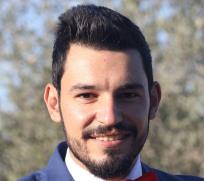Abdulhamid (Abood) Aliahmad

Presentation
Abdulhamid’s research explores how circular sanitation systems, particularly urine recycling, can accelerate sustainability transitions in the wastewater sector. His work rethinks wastewater not as a waste stream but as a renewable source of nutrients and energy—a cornerstone for future climate-smart and resource-efficient cities.
To capture both the environmental and systemic dimensions of this transition, Abdulhamid employs an integrated sustainability transition assessment framework that combines: Life Cycle Assessment (LCA) to quantify environmental performance, Technological Innovation Systems (TIS) analysis to evaluate institutional, market, and policy barriers, and System Dynamics Modeling (SDM) to simulate long-term adoption trajectories and feedback mechanisms.
His research bridges environmental assessment and sustainability transition science, providing policymakers and utilities with insights for designing and implementing future-ready sanitation systems that close the loop between cities and agriculture.
Teaching
I teach in the below courses:
1. Enskilda avlopp och resursåtervinning
2. SNIK. source separating systems
Background
Master's background in Energy & Environmental Engineering with a focus on sustainability engineering from Linköping University. Master thesis in carbon neutrality & footprint with Volvo CE.
Bachelor's background in Civil/Environmental Engineering with a focus on sanitation engineering and municipal wastewater in Palestine.